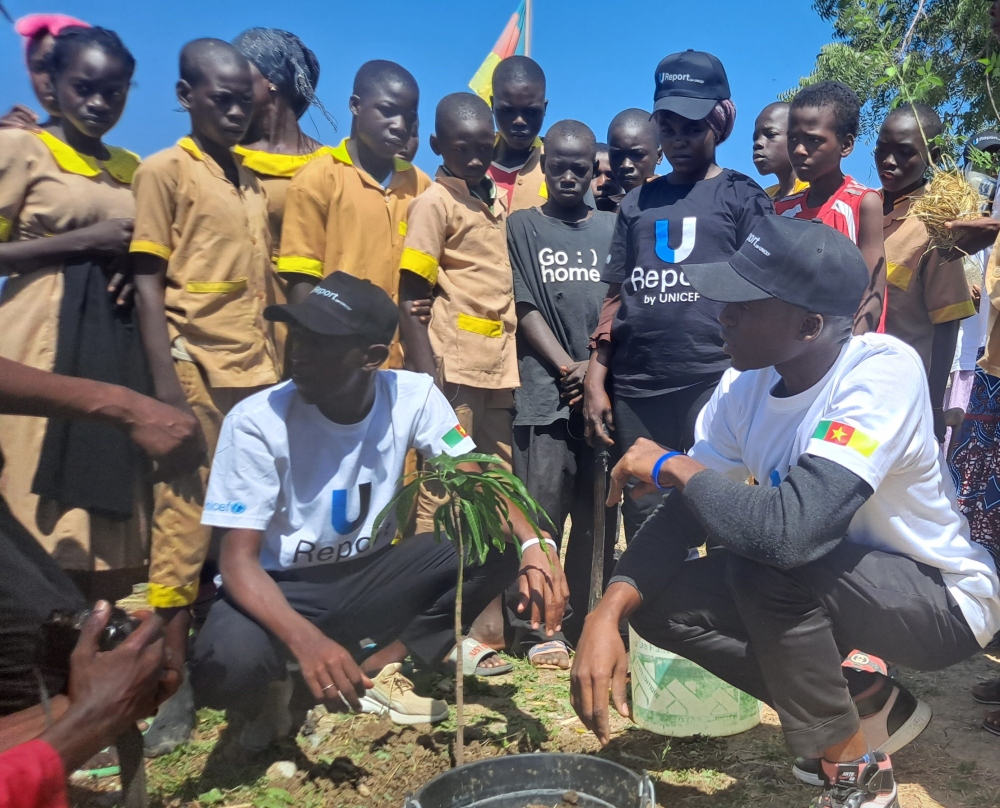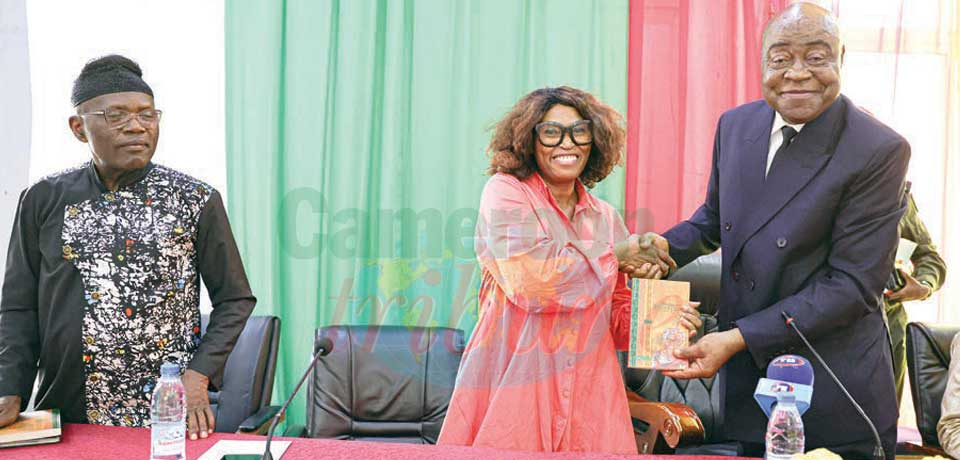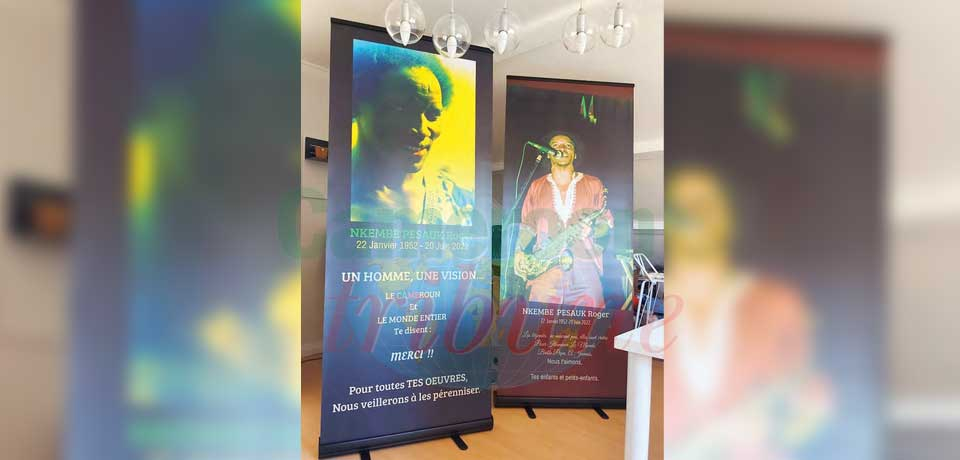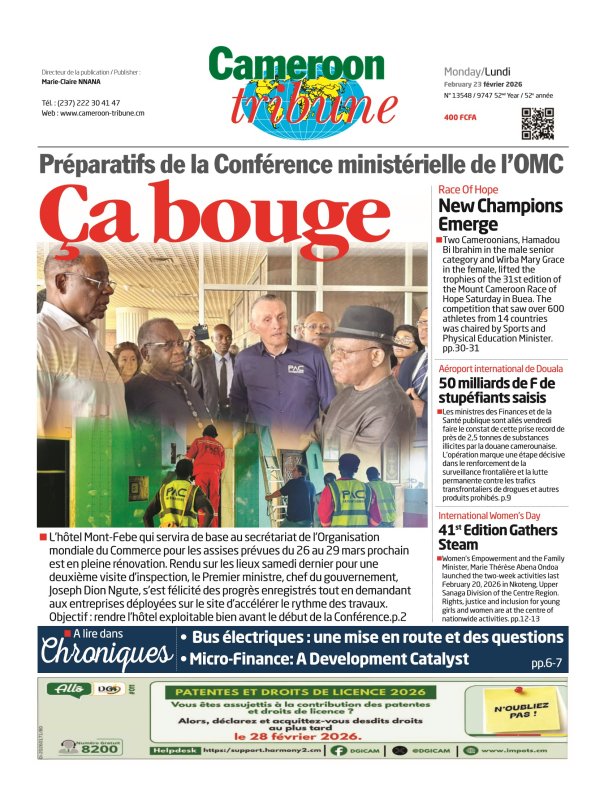Climate Action : On Their Marks, Set, Go!
- Par Kimeng Hilton
- 16 May 2025 16:37
- 0 Likes

UNICEF Cameroon on May 16, 2025 organized the first public screening of the documentary "Eco Trip: Together for a Green Future," an educational and immersive programme produced by young Cameroonians.
It was a potpourri of people concerned about the climate crisis that gathered in the United Nations Children’s Fund, UNICEF Cameroon head office in the capital, Yaounde on Friday May 16, 2025. To watch the premiere of a climate change documentary, “Eco Trip: Together for a green future,” shot in Maroua, Kousseri and Logone Birni in the Far North Region of Cameroon. And produced by Lionel Anatole Onana, with the support of UNICEF Cameroon.
As They Live It
“Eco Trip” or Ecovoyage in French,” highlights the challenges faced by people in the Far North Region, especially young children, in the face of climate change. And how they are seeking innovative ways of mitigating and adapting to the situation.
Recovery Efforts
The first episode, entitled "Floods in the Far North: Impact, Recovery, and Natural Disaster Prevention," highlights the consequences of climate change on children and the communities of Logone Birni, Maga, and Kousseri, severely affected by the September 2024 floods. Through the testimonies of U-Reporters and local stakeholders, it illustrates community recovery efforts and concrete actions carried out by young people.
Awareness, Awareness, Awareness!
“Eco Trip” was borne out of a desire to raise awareness on climate change challenges such as recurrent floods and plastic waste management amongst youth. In the 15-minute summarized version of the documentary which is one hour, 40 minutes-long, a female student in Kousseri complains of having lost everything to recent floods. Which in its wake turned her community into a submerged island – accessible only by canoe!
Call To Action
“Schools and school routes were submerged in water, forcing many schools to shut down. And obliging the authorities to resettle flood victims in makeshift camps and regroup affected pupils in overcrowded school premises with few teachers. Thus the need for urgent action to salvage the humanitarian crisis. The documentary therefore makes an advocacy for support, sensitization and mobilization of the public” Lionel Anatole Onana, the vision-bearer and producer of the documentary, notes.
Innovative Indigenous Solutions
“On the other hand, in the Far North regional headquarters, Maroua, young school children have been mobilized and are proposing innovative local solutions on how to adapt to climate change – by collecting and using discarded plastic bottles to produce stools, trash cans and clearing blocked gutters in their neighbourhoods; and planting trees.
“To make the venture sustainable, we plan to encourage the formation of school environment clubs where children are regularly involved in climate action,” Onana said.
Not UNICEF’s Sole Responsibility
According to the Cameroon Country Representative of the United Nations Children’s Fund, UNICEF, Nadine Perrault, the idea behind the documentary is to sensitise people to take action against climate change.
“It is not UNICEF’s responsibility alone. The documentary is only part of the climate change initiatives supported by UNICEF. The documentary aims to sensitise climate change stakeholders on its impact – especially on children’s education, feeding, health, wellbeing, gender-based violence in overcrowded displaced people’s camps … The documentary will serve as a tool to raise awareness,” Mrs. Perrault promised.
Early Involvement
“The commitment of young people to climate action is important because they have to learn to be able to protect their environment. Moreover, young people have the courage, strength … to continue to carry out climate actions. This also ensures the sustainability – be they programmes, advocacy, adaption, mitigation – and draws children early to climate change concerns,” commented Diane Abe Eyenga, UNICEF Cameroon Communication Officer on Climate Change.
Increasingly Evident
“The effects of climate change are becoming more and more evident in our ecosystem. This is one of the reasons I began a number of activities to raise awareness on the subject. The difficulties faced in the course of shooting the documentary include insecurity. Which obliged us to travel through Chad to get to Kousseri – instead of doing a direct trip from Maroua to Kousseri. We also returned by the same route. Moreover, we had to live what flood v...
Cet article complet est réservé aux abonnés
Déjà abonné ? Identifiez-vous >
Accédez en illimité à Cameroon Tribune Digital à partir de 26250 FCFA
Je M'abonne1 minute suffit pour vous abonner à Cameroon Tribune Digital !
- Votre numéro spécial cameroon-tribune en version numérique
- Des encarts
- Des appels d'offres exclusives
- D'avant-première (accès 24h avant la publication)
- Des éditions consultables sur tous supports (smartphone, tablettes, PC)














Commentaires